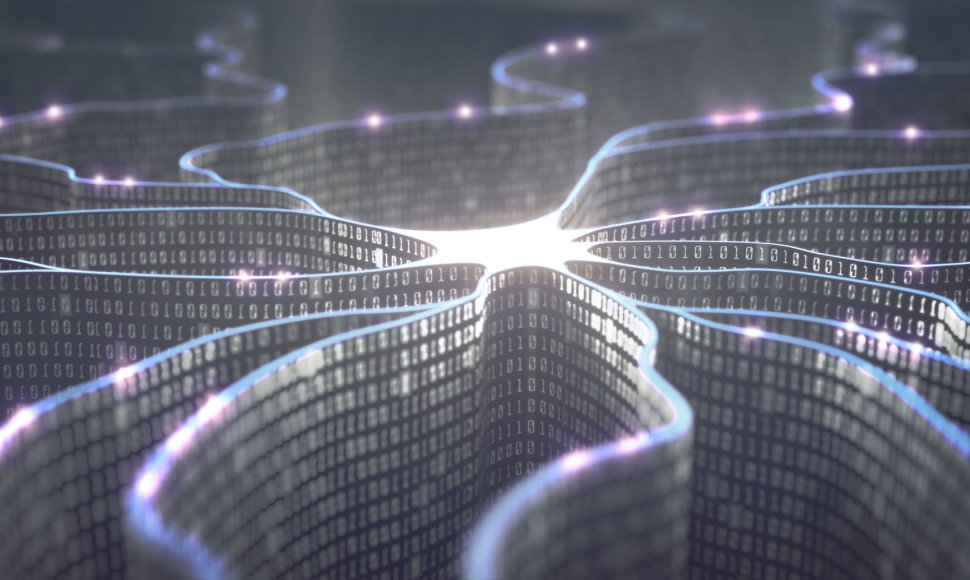The EEML Summer School is a one-week programme to explore and promote key topics in machine learning and artificial intelligence. The school was founded by famous scientists of artificial intelligence - Doina Precup, Razvan Pascanu and Viorica Patraucean. The programme consists of various lectures and practical sessions, the aim of which is to improve the theoretical and practical understanding of these topics. The school’s activities are conducted in English and are tailored to graduate students in this field of science, but it is open to anyone else interested in the subject.
One part of the summer school is a machine learning workshop, organised for the third year in a row. Following successful events in Romania and Ukraine, this year the conference will be held in Vilnius for the first time - the two-day seminar will cover the topics of Deep Learning, Reinforcement Learning and Causal Inference. ‘Vinted’, Europe’s largest online, second-hand fashion trading platform, and its machine learning specialists are one of the event’s sponsors and organisers.
‘This is a significant event for the entire Lithuanian artificial intelligence community. Machine learning is a science of both the present and the future, and there are not enough trained specialists in Lithuania and the world, so this event will be a great opportunity for current researchers to talk about the most relevant topics, and for beginners - to get to know this dynamic field of science’, says one of the conference organisers, President of the Artificial Intelligence Association of Lithuania and the Machine Learning Team Lead at ‘Vinted’, Dovydas Čeilutka.
Researchers representing leading international companies in the field of machine learning, such as ‘Google Brain’, ‘DeepMind’, ‘Element AI’ and others, as well as doctoral students from prestigious universities will deliver their speeches at the virtual conference.
‘All speakers at the upcoming conference are quite experienced scientists with many publications at key artificial intelligence conferences, such as ‘NeurIPS’, ‘ICLR’ and ‘ICML’ under their belts, and that are either working or have worked for key technology companies, from ‘Google Brain’ to ‘Amazon’. For the first time in our country, an event will be held to promote this field of science, bringing together such high-profile speakers. The topics that will certainly find their audiences range from reinforcement learning to causal Bayesian optimisation, deep image processing and others’, says Jev Gamper, one of the conference organisers, board member of the Artificial Intelligence Association of Lithuania and machine learning team lead at ‘Vinted’.
At the conference, Karolina Džiugaitė, a research scientist at ‘Element AI’, a company that develops artificial intelligence solutions, will discuss various methods that have been used to explain generalisation in deep learning and review her latest scientific work. ‘There is currently no universally accepted theory explaining why the deep learning algorithms (that are usually based on stochastic gradient descent) generalise themselves in case of overly parameterised neural networks. I will try to discuss various previous ways of explaining generalisation and present my research on how to explain generalisation in the context of deep learning’, says the researcher.
Razvan Pascanu, a research scientist at the artificial intelligence company ‘DeepMind’, will also speak at the event about machine learning processes. ‘Machine learning works best with fixed data from stationary environments that often exceed human capabilities, but it, however, fails to mimic the effectiveness of human learning. One can learn things gradually, from consistent experiences and adapt in new environments. In my report, I will focus on how lifelong learning can improve deep machine learning, as well as describe the main directions of modern research and their limitations’, says the specialist.
‘The EEML Summer School strengthens the artificial intelligence community and provides opportunities for synergies in the region and with the world. Such workshops are becoming a key component of this process as they allow us to reach communities directly. This year, we are happy to have the conference in Lithuania - it will be an opportunity to get to know this part of the community better, lay the foundations for future cooperation and take one step closer to our goals’, adds Razvan Pascanu.
Everyone interested in the topics of machine learning and artificial intelligence is invited to participate in the free virtual event, which will take place in Vilnius on July 29–30. Conference participants must fill in the registration form by July 26, on the event’s website.












